 The Holidays Season is generally regarded as a time of togetherness and good will. It is a time when we gather to eat, drink, and be merry with the many people who enrich our daily lives. Unfortunately, the holidays can also be a time when those who are Deaf and Hard of Hearing are further marginalized at plays, pageants, parties, dinners, and other events when they are not able to access communications. These social gatherings— where stories, jokes, and common experiences are shared— are important for building rapport and creating strong relationships. Ensuring holiday events are inclusive for those with hearing loss is an easy way to embrace the true spirit of the season!
The Holidays Season is generally regarded as a time of togetherness and good will. It is a time when we gather to eat, drink, and be merry with the many people who enrich our daily lives. Unfortunately, the holidays can also be a time when those who are Deaf and Hard of Hearing are further marginalized at plays, pageants, parties, dinners, and other events when they are not able to access communications. These social gatherings— where stories, jokes, and common experiences are shared— are important for building rapport and creating strong relationships. Ensuring holiday events are inclusive for those with hearing loss is an easy way to embrace the true spirit of the season!
Including Deaf and Hard of Hearing Employees During the Holidays: Things to Consider
HEARING LOSS IN SOCIAL SETTINGS

In situations where there is a lot of background noise (such as music or other conversation) or when there are multiple people speaking, especially all at once, those who are Deaf or Hard of Hearing will struggle to keep up with conversation. After years of being excluded from conversations, they may fall back on smiling and nodding along, laughing when everyone else does, when in truth they have lost the thread entirely.
In professional settings it is extremely common for those who are Deaf or Hard of Hearing to be left out of Holiday events by coworkers and managers who simply haven’t even considered their abilities and limitations. While office parties and seasonal outings may not seem like a big deal, employees with hearing loss can miss chances to build personal bonds with coworkers, and lose valuable opportunities to network with new professional colleagues. In these settings, hearing employees gain an advantage because they are able to gain an understanding of professional dynamics and office politics by observing the subtle communications between peers and management, while those who are Deaf and Hard of Hearing are left to fill in the blanks.
CREATING INCLUSION
 Simply considering the fact that those who are Deaf and Hard of Hearing have different communication needs is the first step toward creating an inclusive Holiday Season. Since deafness exists on a spectrum, there is no one-size-fits-all solution for bridging the communication gap; each individual has their own way of adapting to life in a predominantly hearing society. One person who is Hard of Hearing with cochlear implants might only use only verbal communication, while another may prefer American Sign Language. Some Deaf individuals use ASL, while others are exceptionally skilled lip readers who can voice for themselves.
Simply considering the fact that those who are Deaf and Hard of Hearing have different communication needs is the first step toward creating an inclusive Holiday Season. Since deafness exists on a spectrum, there is no one-size-fits-all solution for bridging the communication gap; each individual has their own way of adapting to life in a predominantly hearing society. One person who is Hard of Hearing with cochlear implants might only use only verbal communication, while another may prefer American Sign Language. Some Deaf individuals use ASL, while others are exceptionally skilled lip readers who can voice for themselves.
As a rule, the best way to begin creating full communication access for those who are Deaf and Hard of Hearing is to just ask those individuals how they prefer to be accommodated! This is an easy, yet often overlooked, way to develop meaningful connections. Involving employees in the process of creating inclusion can open up a dialogue about hearing loss and accessibility in the workplace that makes Deaf or Hard of Hearing employees feel respected and valued.
“I attempt to communicate with hearing and deaf people every day to break barriers,” Vicky Foster explains. “However, to have hearing people, who lack knowledge on Deaf culture, continue to exclude us from workplaces and social events instead of learning to communicate with us — they miss out on this unique and authentic culture of ours.”
DEAF-FRIENDLY HOLIDAY EVENTS
 A person with hearing loss is inevitably going to struggle to keep up with conversation at a holiday cocktail party in a dimly lit bar where 3 people are speaking at once in a room that has an echo. Taking into account the acoustics of a venue or the layout for an event can go a long way toward creating accessibility. For example, choosing a round table for dinner gives Deaf/ HoH individuals a better opportunity to read the lips, gestures, and facial cues of everyone around them. Selecting an adequately lit location where sounds do not bounce around can save Deaf/ HoH attendees a literal headache. Small adjustments like this can be made at little to no cost.
A person with hearing loss is inevitably going to struggle to keep up with conversation at a holiday cocktail party in a dimly lit bar where 3 people are speaking at once in a room that has an echo. Taking into account the acoustics of a venue or the layout for an event can go a long way toward creating accessibility. For example, choosing a round table for dinner gives Deaf/ HoH individuals a better opportunity to read the lips, gestures, and facial cues of everyone around them. Selecting an adequately lit location where sounds do not bounce around can save Deaf/ HoH attendees a literal headache. Small adjustments like this can be made at little to no cost.
For Deaf individuals whose primary language is ASL, a sign language interpreter will typically be the most effective means of ensuring communication access. Hiring interpreters can provide both Deaf and hearing staff with the ability to freely communicate during casual holiday gatherings, which demonstrates a commitment to including all team members in conversation. By recognizing that there are professional repercussions for being left out of social interactions, and addressing this issue head on, organizations can foster cultural awareness and cultivate space for greater diversity among their workforce and clientele.
On the other side of the equation, it’s critical to ensure that hearing employees are comfortable and confident interacting with a person who is Deaf or Hard of Hearing— especially if that person is their colleague!
“I have attended several [office] holiday parties- and always sat with my coworkers who were deaf or even socialized with our interpreters for the party,” says Diana Abayeva, a Social Worker who is Deaf. “No other hearing individuals socialized with us or asked us to participate in games. as a result of this, i do not enjoy attending holiday parties at work.”
 Too often, those who are unfamiliar with the experience of hearing loss and Deaf culture aren’t intentionally excluding their Deaf/ HoH peers, they simply feel awkward and unsure about how to approach this person or hold a conversation. Once hearing employees understand that they can gently tap a person who is Deaf/ HoH to get their attention, that they may need to face Hard of Hearing individuals directly while speaking (and be prepared to repeat themselves!), or how to work with sign language interpreters, these staff members can start to really integrate.
Too often, those who are unfamiliar with the experience of hearing loss and Deaf culture aren’t intentionally excluding their Deaf/ HoH peers, they simply feel awkward and unsure about how to approach this person or hold a conversation. Once hearing employees understand that they can gently tap a person who is Deaf/ HoH to get their attention, that they may need to face Hard of Hearing individuals directly while speaking (and be prepared to repeat themselves!), or how to work with sign language interpreters, these staff members can start to really integrate.
“My biggest struggles at work are centered on not catching everything, causing me not being able to participate as I would like to,” said Claire Scanlon, who is Hard of Hearing and uses primarily oral communication. “My inability to participate and prove my impact on the organization is severely affected by my inability to catch everything being said.”
By empowering all employees with the cultural awareness and tools they need to effectively bridge communication gaps, a business begins to establish a foundation for full inclusion. More professional networking opportunities and genuine connections can remove barriers to advancement, improve morale, and set Deaf and Hard of Hearing employees up for long-term career success!
HOW SIGNNEXUS CAN HELP
We enjoy working with organizations of every type to find new ways to establish an accessible, welcoming environment for Deaf and Hard of Hearing employees during the Holiday Season, and every time of year!
Click here to learn more about Cultural Competency Training, or to refer a company for our training programs! We offer training from Deaf and Hard of Hearing consultants that can be custom tailored to meet the access and inclusion needs of any business. Our programs are offer results individually, or can be combined to create a comprehensive ongoing training program that can be streamlined into any existing organizational processes.




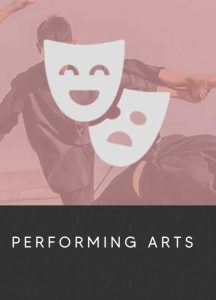

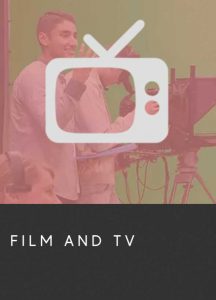





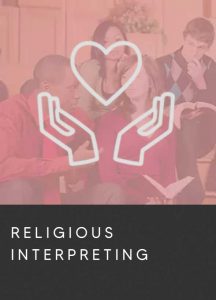
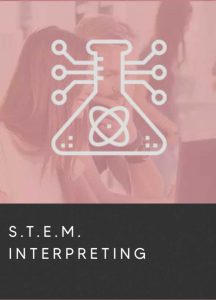
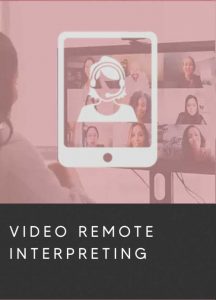
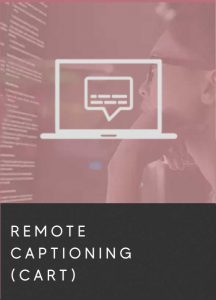

 The Holidays Season is generally regarded as a time of togetherness and good will. It is a time when we gather to eat, drink, and be merry with the many people who enrich our daily lives. Unfortunately, the holidays can also be a time when those who are Deaf and Hard of Hearing are further marginalized at plays, pageants, parties, dinners, and other events when they are not able to access communications. These social gatherings— where stories, jokes, and common experiences are shared— are important for building rapport and creating strong relationships. Ensuring holiday events are inclusive for those with hearing loss is an easy way to embrace the true spirit of the season!
The Holidays Season is generally regarded as a time of togetherness and good will. It is a time when we gather to eat, drink, and be merry with the many people who enrich our daily lives. Unfortunately, the holidays can also be a time when those who are Deaf and Hard of Hearing are further marginalized at plays, pageants, parties, dinners, and other events when they are not able to access communications. These social gatherings— where stories, jokes, and common experiences are shared— are important for building rapport and creating strong relationships. Ensuring holiday events are inclusive for those with hearing loss is an easy way to embrace the true spirit of the season!
 Simply considering the fact that those who are Deaf and Hard of Hearing have different communication needs is the first step toward creating an inclusive Holiday Season. Since deafness exists on a spectrum,
Simply considering the fact that those who are Deaf and Hard of Hearing have different communication needs is the first step toward creating an inclusive Holiday Season. Since deafness exists on a spectrum,  A person with hearing loss is inevitably going to struggle to keep up with conversation at a holiday cocktail party in a dimly lit bar where 3 people are speaking at once in a room that has an echo. Taking into account the acoustics of a venue or the layout for an event can go a long way toward creating accessibility. For example, choosing a round table for dinner gives Deaf/ HoH individuals a better opportunity to read the lips, gestures, and facial cues of everyone around them. Selecting an adequately lit location where sounds do not bounce around can save Deaf/ HoH attendees a literal headache. Small adjustments like this can be made at little to no cost.
A person with hearing loss is inevitably going to struggle to keep up with conversation at a holiday cocktail party in a dimly lit bar where 3 people are speaking at once in a room that has an echo. Taking into account the acoustics of a venue or the layout for an event can go a long way toward creating accessibility. For example, choosing a round table for dinner gives Deaf/ HoH individuals a better opportunity to read the lips, gestures, and facial cues of everyone around them. Selecting an adequately lit location where sounds do not bounce around can save Deaf/ HoH attendees a literal headache. Small adjustments like this can be made at little to no cost. Too often, those who are unfamiliar with the experience of hearing loss and Deaf culture aren’t intentionally excluding their Deaf/ HoH peers, they simply feel awkward and unsure about how to approach this person or hold a conversation. Once hearing employees understand that they can gently tap a person who is Deaf/ HoH to get their attention, that they may need to face Hard of Hearing individuals directly while speaking (and be prepared to repeat themselves!), or
Too often, those who are unfamiliar with the experience of hearing loss and Deaf culture aren’t intentionally excluding their Deaf/ HoH peers, they simply feel awkward and unsure about how to approach this person or hold a conversation. Once hearing employees understand that they can gently tap a person who is Deaf/ HoH to get their attention, that they may need to face Hard of Hearing individuals directly while speaking (and be prepared to repeat themselves!), or 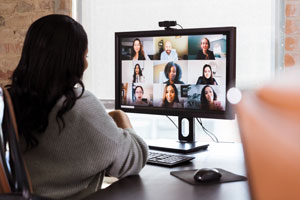 Applying for jobs can be a test of nerves. Each resume must be tailored and each cover letter is a carefully crafted sales pitch. We highlight our skills and professional experience while explaining why we’d be a great fit for the organization. On employment applications, we are asked to expose so much of ourselves, yet we are expected to keep the most important details private.
Applying for jobs can be a test of nerves. Each resume must be tailored and each cover letter is a carefully crafted sales pitch. We highlight our skills and professional experience while explaining why we’d be a great fit for the organization. On employment applications, we are asked to expose so much of ourselves, yet we are expected to keep the most important details private. Often, employers do not understand how to accommodate people with different abilities, fearing (incorrectly) that it will be
Often, employers do not understand how to accommodate people with different abilities, fearing (incorrectly) that it will be  2) Mediators
2) Mediators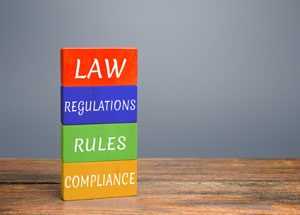 5) Hard Workers
5) Hard Workers workplace that employs deaf individuals can enrich the culture of their entire organization! Adding diversity provides all employees the opportunity to work on effective communication and cooperation skills, while challenging people to explore new perspectives. With proper cultural competency training, each individual in an organization can learn to become more compassionate, open minded, and willing to go the extra mile for the team.
workplace that employs deaf individuals can enrich the culture of their entire organization! Adding diversity provides all employees the opportunity to work on effective communication and cooperation skills, while challenging people to explore new perspectives. With proper cultural competency training, each individual in an organization can learn to become more compassionate, open minded, and willing to go the extra mile for the team. As our society increasingly celebrates diversity, businesses that do not adapt inclusive hiring policies are sure to fall out of favor. By denying qualified deaf individuals job opportunities, employers are also refusing their current employees the opportunity to learn and grow in a multicultural work environment. Additionally, the employee profile of a business sends a subtle message to potential clients and customers about an organization’s fundamental values.
As our society increasingly celebrates diversity, businesses that do not adapt inclusive hiring policies are sure to fall out of favor. By denying qualified deaf individuals job opportunities, employers are also refusing their current employees the opportunity to learn and grow in a multicultural work environment. Additionally, the employee profile of a business sends a subtle message to potential clients and customers about an organization’s fundamental values. Applying for jobs can be exciting and nerve-wracking. You revise your resume until it is in top form, hoping your professional skills are strong enough about to be considered for the position. When a company contacts you to schedule a formal interview, gushing about how well qualified you are, they suggest that the job is essentially yours. It seems like everything is going great, right up until you inform the hiring manager that you are deaf and will need a sign language interpreter for the interview. “Oh, we will have to get back to you about that,” they say. But they almost never do.
Applying for jobs can be exciting and nerve-wracking. You revise your resume until it is in top form, hoping your professional skills are strong enough about to be considered for the position. When a company contacts you to schedule a formal interview, gushing about how well qualified you are, they suggest that the job is essentially yours. It seems like everything is going great, right up until you inform the hiring manager that you are deaf and will need a sign language interpreter for the interview. “Oh, we will have to get back to you about that,” they say. But they almost never do. Deaf people have to constantly push back against a society that was not designed for them to succeed. As an interpreter and CODA (Child of Deaf Adults), it can be hard to witness the structural injustice faced by my deaf colleagues and family members on a daily basis. I was recently on an assignment where the deaf consumer shared with me their frustration that the only times they were ever provided an interpreter was when it was absolutely necessary to moving forward on a project. This deaf individual works for a federal agency– an organization with plenty of funding to properly support their employees– yet has to work harder than any of their coworkers just to participate in the workplace.
Deaf people have to constantly push back against a society that was not designed for them to succeed. As an interpreter and CODA (Child of Deaf Adults), it can be hard to witness the structural injustice faced by my deaf colleagues and family members on a daily basis. I was recently on an assignment where the deaf consumer shared with me their frustration that the only times they were ever provided an interpreter was when it was absolutely necessary to moving forward on a project. This deaf individual works for a federal agency– an organization with plenty of funding to properly support their employees– yet has to work harder than any of their coworkers just to participate in the workplace. Respect comes from understanding, from communicating, and from making a person feel appreciated. Before you even interview a deaf job candidate, do a little research on
Respect comes from understanding, from communicating, and from making a person feel appreciated. Before you even interview a deaf job candidate, do a little research on In our current shifting social climate, organizations of all sizes are looking for ways to create workplace diversity. Diversity initiatives might be good intentioned, but many times they are poorly implemented, leaving these minority employees to sink or swim. Supporting deaf staff on an ongoing basis is like providing hardware and software updates, it is like making sure the break room has coffee– it is a crucial part of creating a healthy and functional working environment. It is simple, and the right thing to do.
In our current shifting social climate, organizations of all sizes are looking for ways to create workplace diversity. Diversity initiatives might be good intentioned, but many times they are poorly implemented, leaving these minority employees to sink or swim. Supporting deaf staff on an ongoing basis is like providing hardware and software updates, it is like making sure the break room has coffee– it is a crucial part of creating a healthy and functional working environment. It is simple, and the right thing to do.





